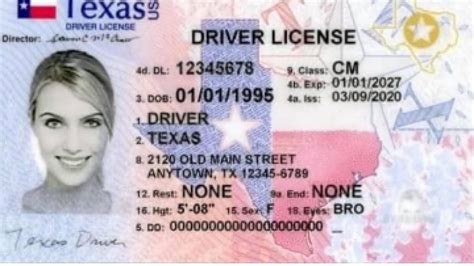The great state of Texas, where everything is bigger, including the opportunities for professional growth and development. If you're looking to start a career in pest control or agriculture, getting your Texas Applicator License is a crucial step in achieving your goals. But, we know that navigating the licensing process can be overwhelming, especially for those new to the industry. That's why we're here to guide you through the process, making it easy and stress-free.
In this article, we'll cover everything you need to know about getting your Texas Applicator License, from the benefits of having a license to the step-by-step application process. We'll also provide you with valuable tips and resources to help you prepare for the licensing exam and maintain your license once you've got it.
Benefits of Having a Texas Applicator License
Before we dive into the application process, let's talk about the benefits of having a Texas Applicator License. Here are just a few reasons why getting licensed is a great idea:
- Increased earning potential: Having a Texas Applicator License can increase your earning potential and open up more job opportunities in the pest control and agriculture industries.
- Professional credibility: A license demonstrates your expertise and professionalism in the field, giving you a competitive edge in the job market.
- Compliance with regulations: Licensing ensures that you're complying with state and federal regulations, reducing the risk of fines and penalties.

Types of Texas Applicator Licenses
The Texas Department of Agriculture (TDA) issues several types of applicator licenses, each with its own set of requirements and restrictions. Here are the most common types of licenses:
- Private Applicator License: For individuals who apply pesticides on their own property or on the property of others for personal use.
- Commercial Applicator License: For individuals who apply pesticides for hire or as part of their job duties.
- Non-Commercial Applicator License: For individuals who apply pesticides for non-commercial purposes, such as for government agencies or non-profit organizations.
Private Applicator License Requirements
To get a Private Applicator License in Texas, you'll need to:
- Be at least 18 years old: You must be at least 18 years old to apply for a Private Applicator License.
- Pass a written exam: You'll need to pass a written exam administered by the TDA to demonstrate your knowledge of pesticide application and safety.
- Complete a training program: You'll need to complete a training program approved by the TDA, which covers topics such as pesticide safety, application techniques, and regulations.

Commercial Applicator License Requirements
To get a Commercial Applicator License in Texas, you'll need to:
- Be at least 18 years old: You must be at least 18 years old to apply for a Commercial Applicator License.
- Pass a written exam: You'll need to pass a written exam administered by the TDA to demonstrate your knowledge of pesticide application and safety.
- Complete a training program: You'll need to complete a training program approved by the TDA, which covers topics such as pesticide safety, application techniques, and regulations.
- Get liability insurance: You'll need to get liability insurance to cover any potential damages or injuries caused by pesticide application.

Step-by-Step Application Process
Now that we've covered the benefits and requirements of getting a Texas Applicator License, let's walk through the step-by-step application process:
- Meet the eligibility requirements: Make sure you meet the eligibility requirements for the type of license you're applying for.
- Study for the written exam: Study for the written exam by completing a training program approved by the TDA or by using study materials available on the TDA website.
- Pass the written exam: Pass the written exam administered by the TDA to demonstrate your knowledge of pesticide application and safety.
- Submit your application: Submit your application to the TDA, including all required documentation and fees.
- Get liability insurance: If you're applying for a Commercial Applicator License, get liability insurance to cover any potential damages or injuries caused by pesticide application.

Tips and Resources
Here are some valuable tips and resources to help you prepare for the licensing exam and maintain your license once you've got it:
- TDA website: The TDA website has a wealth of information on licensing requirements, exam study materials, and continuing education courses.
- Training programs: Look for training programs approved by the TDA to help you prepare for the written exam and maintain your license.
- Continuing education courses: Take continuing education courses to stay up-to-date on the latest developments in pesticide application and safety.

Conclusion
Getting your Texas Applicator License is a crucial step in achieving your career goals in the pest control and agriculture industries. By following the step-by-step application process and taking advantage of valuable tips and resources, you can make the process easy and stress-free. Remember to stay up-to-date on the latest developments in pesticide application and safety by taking continuing education courses and following the TDA website.






How do I apply for a Texas Applicator License?
+To apply for a Texas Applicator License, you'll need to meet the eligibility requirements, pass a written exam, and submit your application to the TDA.
What are the different types of Texas Applicator Licenses?
+The TDA issues several types of applicator licenses, including Private Applicator Licenses, Commercial Applicator Licenses, and Non-Commercial Applicator Licenses.
How do I prepare for the written exam?
+You can prepare for the written exam by completing a training program approved by the TDA or by using study materials available on the TDA website.
